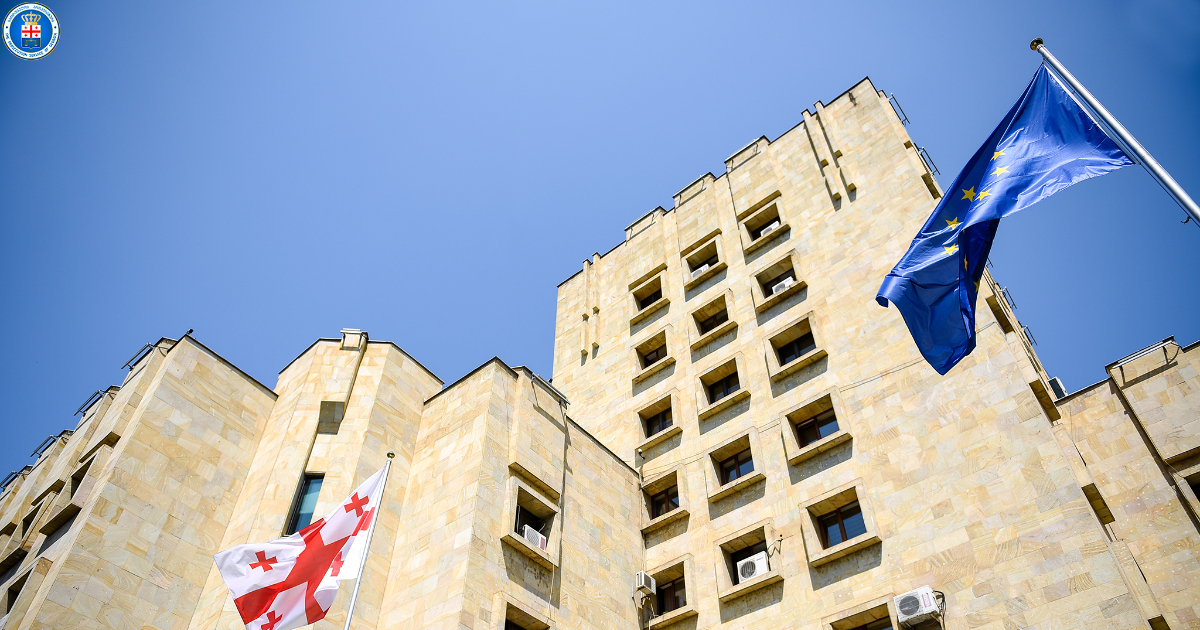Military objectives of US, Israel achieved, Major General Kapanadze

Georgia’s defense capacity is a matter of critical importance - not just due to the potential threat from Russia, but also due to the complex and volatile nature of the region. Various provocative scenarios are plausible, Kapanadze said
Author
Front News Georgia
The international situation is becoming increasingly unpredictable - marked by the 12-day Iran-Israel confrontation in the Middle East, the active involvement of the United States, and parallel preparations for the NATO Hague Summit, which is expected to focus on Ukraine and broader regional security concerns. What strategic objectives did each party pursue in the conflict? How effectively did US and Israeli military intelligence operate? And what are the implications for Georgia, whose defense readiness remains in question?
Major General Vakhtang Kapanadze, former Chief of the General Staff of the Georgian Armed Forces, discusses these and other pressing issues in an interview with Front News.
– How would you assess the 12-day Iran-Israel war from a military standpoint? Who gained the real advantage, given that both sides claimed victory?
Authoritarian regimes - particularly Iran - tend to portray even a lost war as a victory. This confrontation is a textbook example of such propaganda. Tehran is attempting to convince its domestic audience that it has emerged victorious. However, from a military perspective, the operation was executed by Israel and the United States according to a concept that has been widely discussed in the West since the 1990s. It is distinctly different from what we see today in the Russia–Ukraine war.
This conflict has made it clear that in 21st-century warfare, technological superiority and precision-targeting capabilities - alongside high levels of operational control - play a decisive role. Therefore, it can be said that the military goals set by the United States and Israel have indeed been fulfilled.
– Donald Trump’s decision to end the war was viewed by many as a strategic maneuver. Was it a diplomatic move, a peak in military pressure, or a reaction to Iran’s nuclear potential?
From the outset, it was evident that neither Israel nor the US aimed to occupy Iran or change its regime. Their publicly stated goal was to restrict and destroy Iran’s nuclear capabilities. In my opinion, that goal has been achieved.
As for internal political changes within Iran, the US understood that artificially forcing regime change could result in serious consequences. Iran is a multi-ethnic state, and any radical shift could destabilize the entire region. Considering these factors, President Trump chose to temporarily suspend the operation. The rest will be determined by how events unfold.
– Is there a real risk that Tehran has hidden or preserved parts of its nuclear infrastructure?
Yes, there are indications that Iran may have hidden radioactive materials. However, without the proper industrial infrastructure, merely possessing materials doesn’t mean the country can quickly reconstitute its nuclear capability. Transporting and concealing such materials is far riskier than storing them in fortified military bases like Fordow.
We must also acknowledge the monumental role of Mossad in this operation. It is entirely possible that Israeli intelligence already knows exactly where Iran attempted to hide its assets - if that did indeed occur. The US dropped 14 bombs on nuclear storage sites. An attack of that scale leaves little room for survivability.
– Did the war weaken the Iranian regime’s domestic legitimacy, or did it reinforce Tehran’s regional influence?
I do not believe the Iranian regime has strengthened its influence in the region. However, Iran's internal dynamics remain highly unpredictable. Defeating a regime militarily does not automatically lead to regime change. We saw this in Saddam Hussein’s case after the Kuwait war.
The problem is that the Iranian government controls the information space so tightly that only regime-friendly narratives reach the population. That said, the regime’s internal security systems and infrastructure have sustained serious damage. Their top priority now is to restore internal control.
As for the Mossad network, I doubt it has been completely dismantled. Even if Iran has uncovered some agents, they are likely also fabricating information - typical of authoritarian regimes.
– What are your expectations from the NATO Hague Summit regarding Ukraine? Might any significant political or military actions be taken against Russia, particularly in light of President Zelensky’s visit to The Hague?
I don’t expect Ukraine’s membership to be formally decided, but there will certainly be strong political messaging. In terms of actions against Russia, I anticipate that sanctions will be intensified and broadened.
I am also nearly certain that key decisions will be made to sustain and expand military support for Ukraine - particularly in the realm of air defense. At this stage, the addition of Patriot systems is critical for Ukraine, especially as US focus has recently shifted toward the Middle East.
– The negotiations on the Ukrainian war seem deadlocked. Do you see any realistic chance for progress?
I expect that by year’s end, there might be some movement toward a ceasefire. Much will depend on Ukraine’s military success. If Ukraine can consolidate its positions at the front and prevent Russia from launching new offensives, that could open the door to negotiations.
Russia, on the other hand, is not eager to end the war. Millions of its citizens are now employed in the war effort, receiving salaries for their participation. Repatriating this population would cause significant social unrest. Yet even a ceasefire has benefits for Russia - namely, keeping the army mobilized while reallocating resources. Under such conditions, Russia’s main goal will be to preserve its strategic positions and regroup.
- Where does Georgia currently stand with NATO - progress, stagnation, or regression? And how would you assess the country's defense posture in light of regional threats?
A simple comparison of defense budgets between Georgia, Armenia, and Azerbaijan reveals how far behind we are. The disparity in the size of the armed forces, military equipment, and systems further highlights this gap.
Georgia’s defense capacity is a matter of critical importance - not just due to the potential threat from Russia, but also due to the complex and volatile nature of the region. Various provocative scenarios are plausible.
As for relations with NATO - unfortunately, there is no visible progress. Even publicly available sources provide no clarity on what our NATO mission is doing or how Georgia is participating in broader processes. Everything seems to be in a state of ambiguity - practically, white noise.
By Elza Paposhvili
Tags:
Vakhtang Kapanadze




